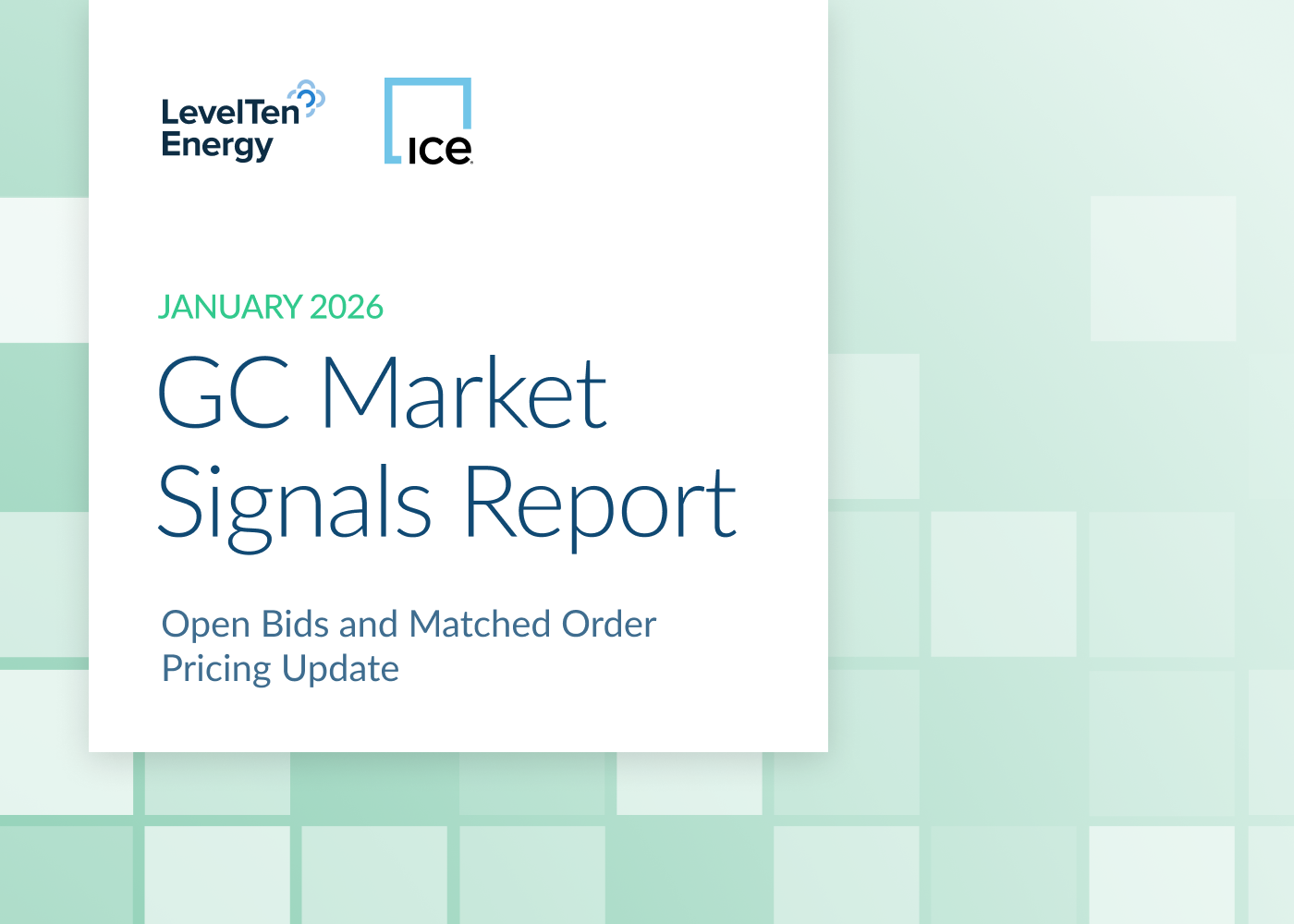Starting in early 2020, the renewables market began shifting into more dynamic conditions driven by surging clean energy demand and fueled by macroeconomic fluctuations, supply chain challenges, and a broad array of other market and regulatory factors that have made it more difficult for renewable supply to keep pace with demand. Many developers and buyers have adapted their approaches to transact in these new conditions. So what makes for successful PPA contracting in these evolving market conditions?
To answer just that, Rob Collier, Vice President of Developer Solutions at LevelTen Energy, sat down for a Q&A to address some questions likely on the minds of today’s energy developers, buyers, and advisors.
QUESTION: How can buyers transact successfully in this market?
ROB: First of all, the good news is that PPA deals are still getting done. Contract innovations tailored to current market conditions are enabling successful PPA transactions. And second, buyers have so far remained undeterred by market conditions, meaning that demand is still high. Both of these facts are encouraging, because it means that parties on both sides of the table are incentivized to find common ground. That said, in what has become a more challenging market, there are several approaches buyers should take to be competitive, including:
• For buyers early in their procurement journey, securing alignment and signoff from internal stakeholders before entering the PPA market is critical so they can move quickly when it comes time to transact. The best PPAs are going quickly.
• Buyers ready to enter the market should have their preferred project criteria clearly identified so they can efficiently select an optimal project and make sure they don’t miss out on the best opportunities. Prior to PPA negotiations, buyers should have internal alignment around PPA collateral requirements, especially for buyers without investment-grade credit ratings.
• In the PPA contracting stage, buyers should be aware that many projects now ask for contingencies or contractual offramps if the project fails to secure permits or other development approvals. Though these contingencies were more atypical in the past, they are now common measures for projects to secure construction financing in the face of growing development uncertainties.
Recently, my colleague Gia Clark presented at the Smart Energy Decisions conference, where a really apt analogy was shared: Buying renewable energy in this market is not unlike trying to buy a house in a tight housing market. Getting a clear idea of the home you want, what your budget looks like, the terms you’re willing to accept, and pre-approvals from the bank will all make you a more competitive buyer. Those that are motivated and able to quickly adjust to market conditions will end up with a home they want.
QUESTION: What is LevelTen doing to accelerate transactions under these dynamic market conditions?
ROB: LevelTen has the largest clean energy marketplace in the world, and we believe we also have the most transparent marketplace. Our aim is to empower buyers and developers alike with the right pieces of data around PPA offers, and enable them with the tools to get deals done quickly. With that in mind, we are continually expanding our Energy Marketplace and broader Platform to adapt to market conditions.
As we saw in LevelTen's Q4 2021 Developer Survey, innovations in the form of nonstandard contract structures are becoming more prevalent. Because of this, in the coming months, we will be unveiling new tools on our Energy Marketplace that make it easier to secure alternative offer types that maximize the likelihood of transactional success. Stay tuned on that. As for the aspects of transactions that are more difficult to automate, we have our network of over 30 of the world’s leading energy consultancies that can capably guide renewable energy buyers.
QUESTION: Is it still economical to enter into a PPA right now? Or should energy buyers sit tight until prices stabilize?
ROB: It’s important to keep in mind that most energy buyers go into PPAs not to make money, but to achieve their energy and sustainability targets by securing renewable energy certificates (RECs) from new wind and solar projects to match their energy consumption. Buyers that have 2025 or 2030 renewable energy targets really can’t afford to sit things out, because there’s no guarantee that conditions will shift into a less constrained market any time soon.
Two regions in particular are worth mentioning. PJM, which has experienced significant hurdles in project cost, features high-value RECs. Solar RECs in Pennsylvania, which began 2021 in the mid-$20 range, are now over $40. In ERCOT, which has historically had low-value RECs, the price of these certificates has increased from $1-2 in early 2021 to over $5 today. While there is no guarantee that REC prices remain this elevated, the data underscore that while energy market pricing can be volatile and impact the dispersion of settlement values in a VPPA, environmental attribute markers are similarly volatile and can react dramatically to changes in market conditions.
PPAs are still an economical, proven way of achieving long-term renewable energy targets while also bringing incremental clean energy onto the grid. Even now, there are markets such as Texas that deliver strong economic value and continue to have large volumes of renewable energy offers. Buyers who want additionality, have near-term energy targets in 2025 or 2030, and are motivated can absolutely succeed in the current market.


.png)
.png)


